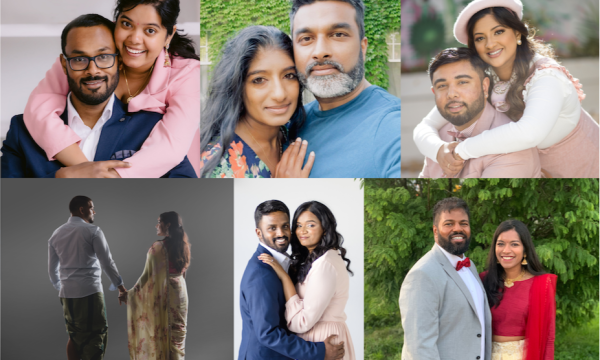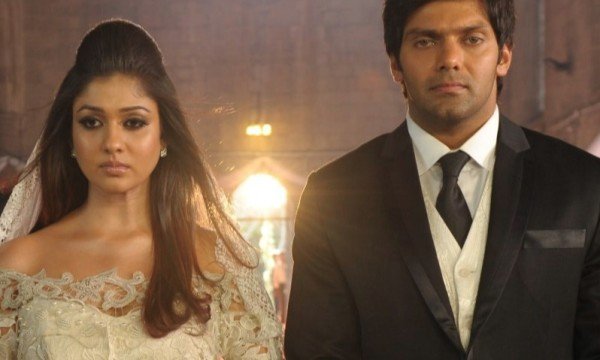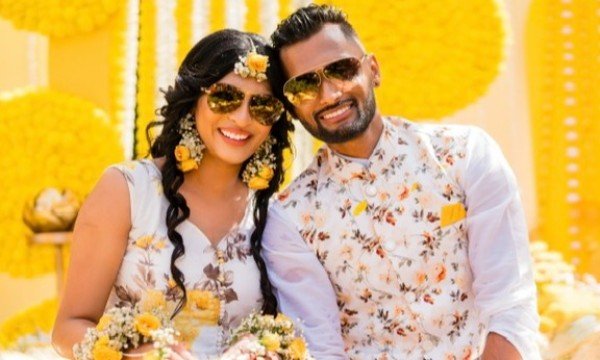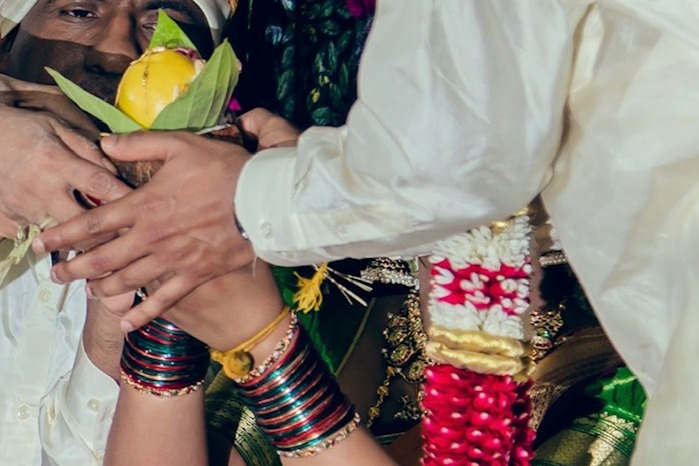
Date on your own terms! Join myTamilDate.com and meet Tamil singles looking for meaningful relationships from Canada, UK, USA & more.
Weddings are a time when individuals embrace cultural and religious rituals in their lives. For those of us living in the diaspora, it is actually an opportunity to learn about our roots. However, how many of us actually inquire about the wedding rituals that are performed? How many of us actually know what commitments we agree to on our special day? In the aspiration to keep cultural elements intact, are we continuing to abide by patriarchal norms without understanding their significance? A ritual that continues in Tamil Hindu weddings is the kanyadaan (referred to as kanyadaanam in Tamil). This is the ritual where the father of the bride takes the bride’s hand and gives it to the groom. In some communities, the daughter sits on the father’s lap. There are sentimental values that are attached to this today, and photographers tend to capture some of the best wedding shots during this portion of the wedding.
Let’s dive into the roots of this ritual.
“Kanya” means daughter and “daan” (means donation or giving away). Hence, “Kanyadaan” means giving away the daughter. Many argue that the concept of Kanyadaan is not found in Vedic texts. However, this concept appears in the controversial Hindu text “Manusmriti” (regarded as the Hindu Code of Conduct today), where women are depicted as needing guardianship from male figures their entire lives – hence the responsibility shifts from father to husband. This ritual is regarded as the “highest charity” performed by the bride’s parents where they have now washed away all their past sins! It is also believed that the parents have now severed their ties with their daughter as they have donated her away.
Many feminist and social advocates have spoken against the Manusmriti for its patriarchal and casteist teachings. In fact, Dr BR Ambedkar burned the Manusmriti on December 21, 1927, protesting against principles in the religious text that stripped away basic rights for Dalits (known as the untouchables) and women.
For example, in the case of women, the Manusmriti states: (chapter 5, shlokas 148, 149):
Even in her own home, a female – whether she is a child, a young woman or an old lady – should never carry out any task independently. As a child, she must remain under her father’s control, as a young woman, under her husband’s; and when her husband is dead, under her sons.
Shloka 154 adds:
Though he may be bereft of virtue, given to lust, and totally devoid of good qualities, a good woman should always worship her husband like a god.
There is much more about controlling women’s sexuality and reproductive system!
However, there continues to be arguments made that this entire decoding of kanyadaan is misinterpreted and it is indeed a beautiful bonding tradition between the bride and the father. Some even argue that this concept was not part of the original Manusmriti and was a later addition due to varying social influences. No matter what you believe, please do your own research which is not based solely on religious teachings.
If you are planning to get married, consider whether you want to adhere to a patriarchal ritual such as this one in the name of cultural continuity. For example, Bollywood actress Dia Mirza famously took a stand against this ritual at her wedding and got a priestess to perform the wedding, attempting to break patriarchal rituals.
I have removed this portion from the weddings I have conducted. In fact, historically, prior to Hindu influences, Tamil weddings did not have such a concept. Instead, I ask both the bride and the groom whether they willfully accept this union and request an oath on the Tamil text Thirukkural citing verses about marriage and love.
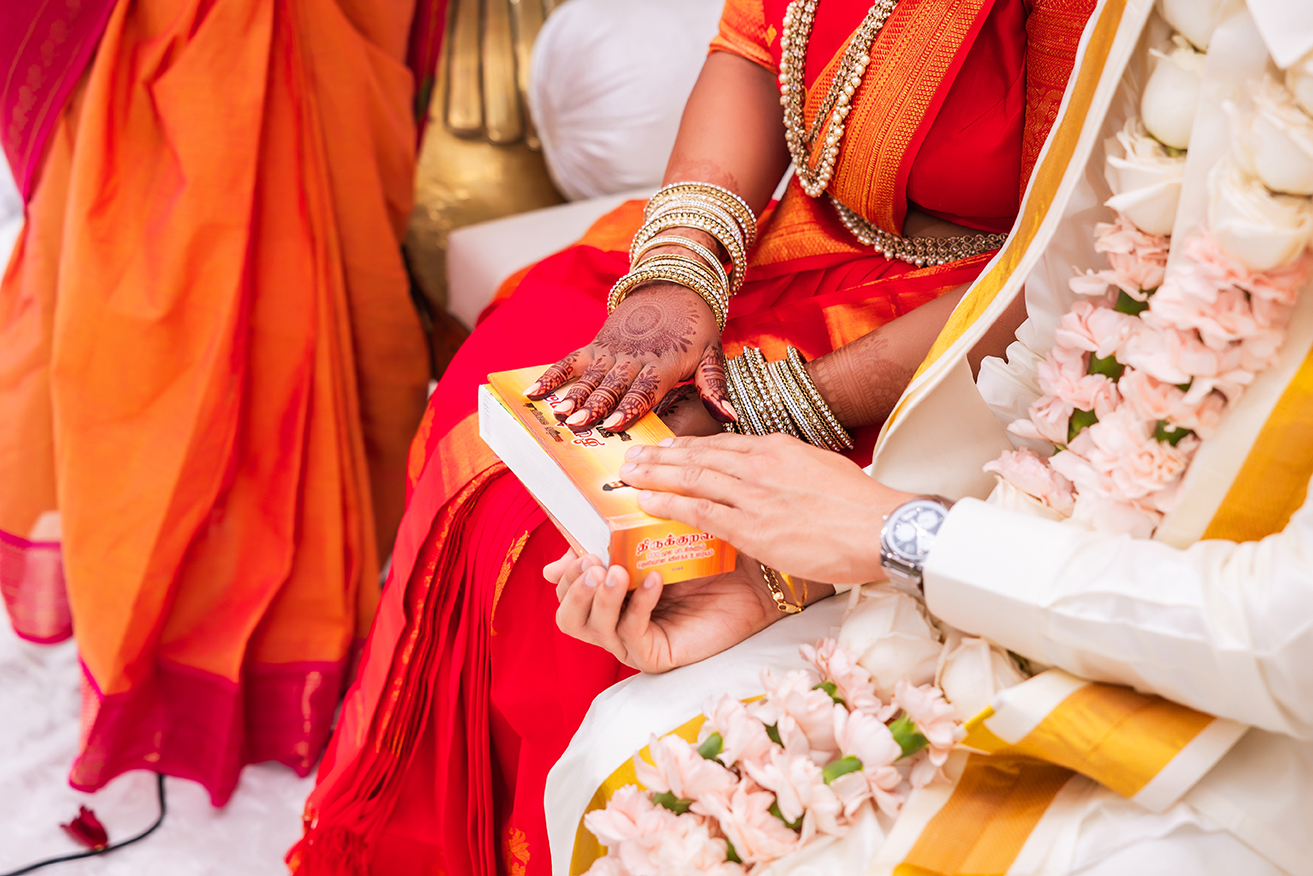
I understand that our marriages are a union of two families and it is hard to convince families to change age-old traditions. But this is what I tell couples: think far into the future and if you do want children, how powerful would it be to tell them that you both took a stand against objectifying women right from the beginning of your companionship. This may be a battle worth fighting for.
Sources:
-
Gendering Caste: Through a Feminist Lens by Uma Chakravarti
-
The Laws of Manu and What They Would Mean for Citizens of the Hindu Rashtra by Subhasini Ali
-
The Sexual Politics of the Manusmriti: A Critical Analysis with Sexual and Reproductive Health Rights Perspectives by N.M Nassera and Moly Kuruvilla
Photo credits: https://www.instagram.com/pearlimage/; https://www.instagram.com/eventcapturestudio/
To learn more about ancient Tamil customs and practices follow @whatthepottu: https://www.instagram.com/whatthepottu/?hl=en
*This article is part of the #whatthethirumanam series by @whatthepottu on ancient Tamil wedding customs.
What is my Identity? It's a question that we all seek to answer in our own ways throughout our lives. Each episode of Identity spotlights a different creative, some from the Tamil community and some from outside it, who will be chatting about how we take ownership of our narratives, art, politics and of course who we are. We hope to inspire you through their unique stories of seeking and finding Identity. Episodes:




